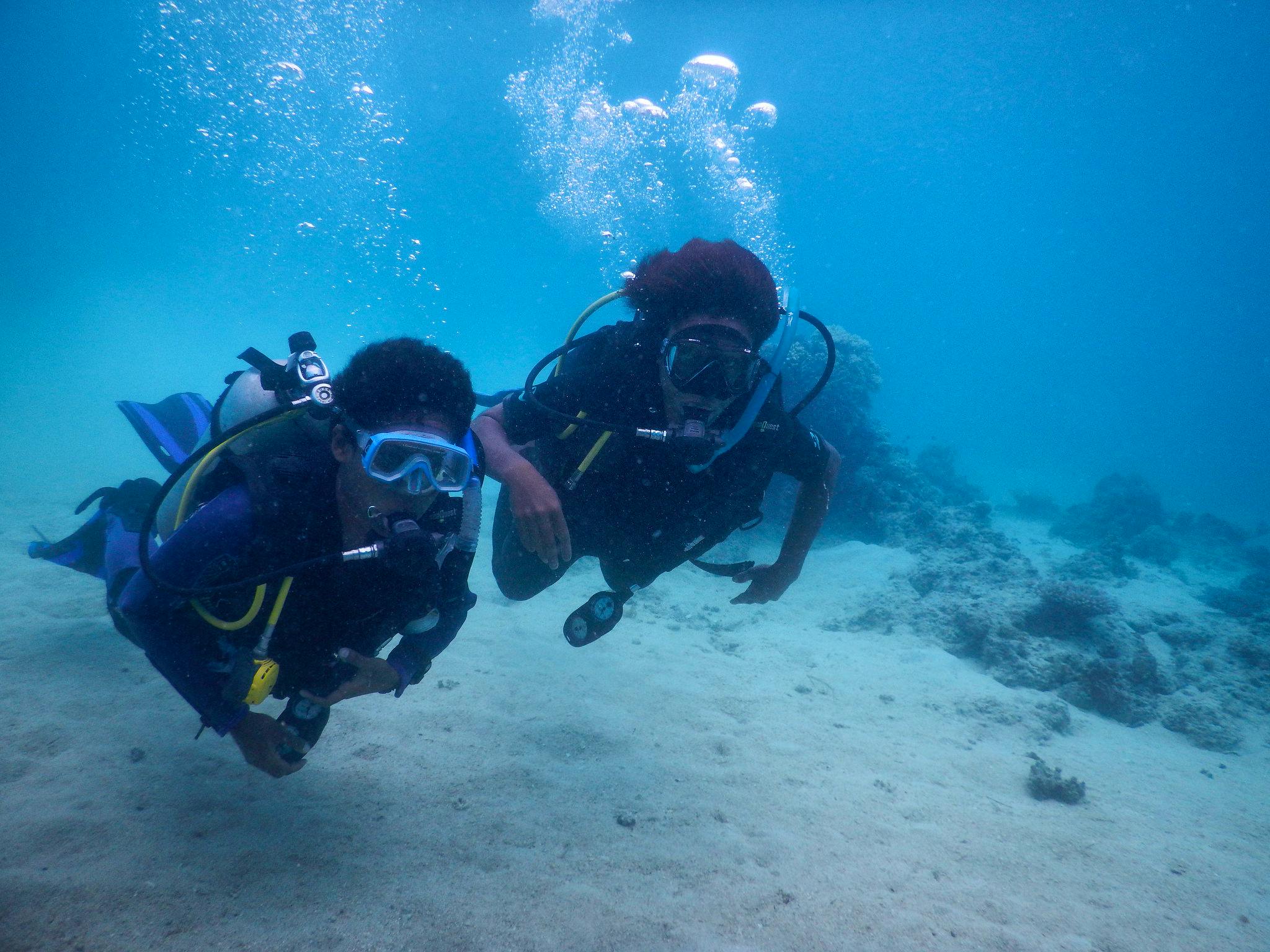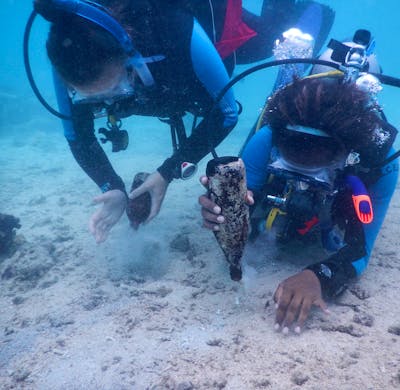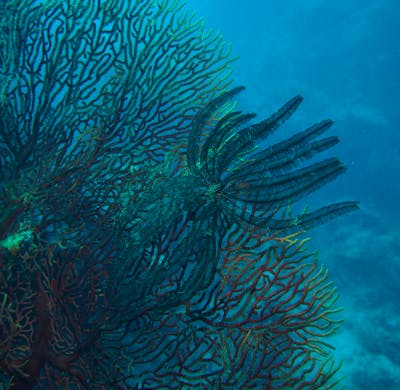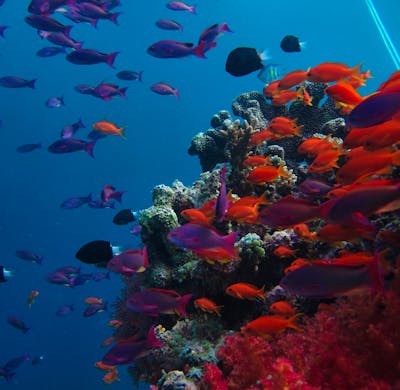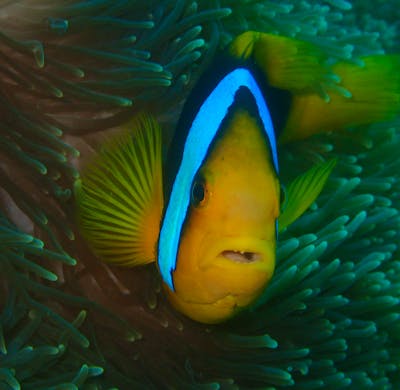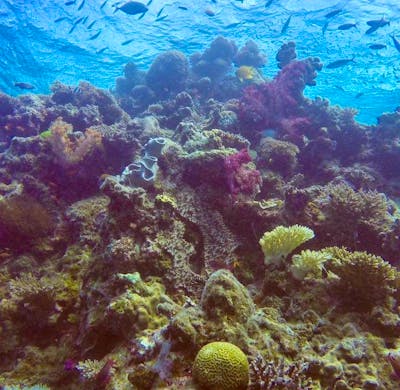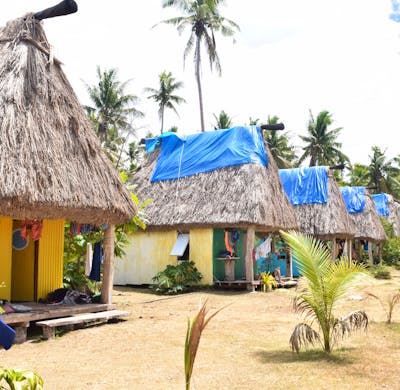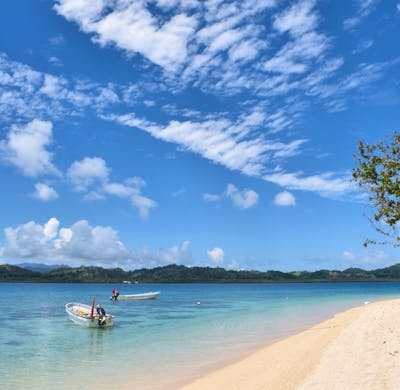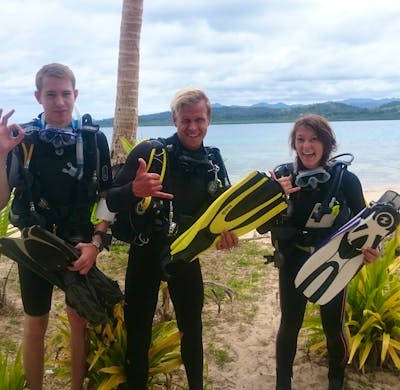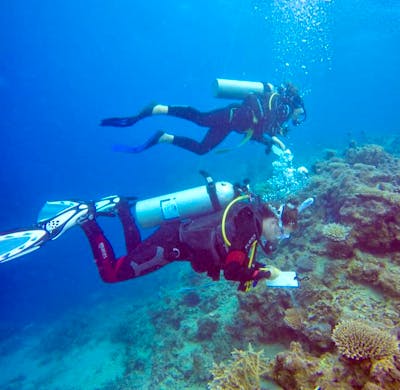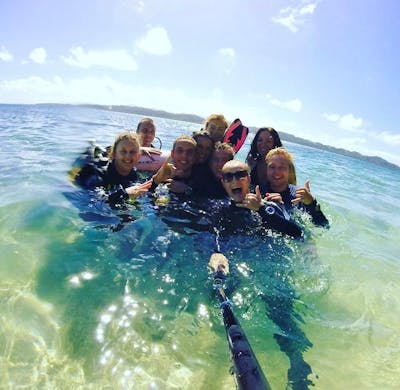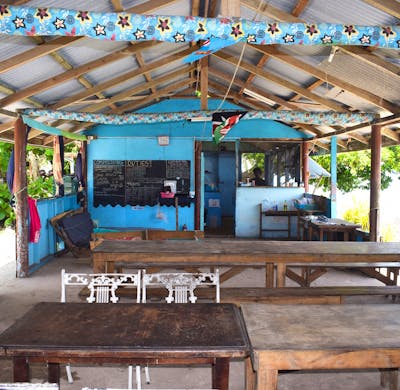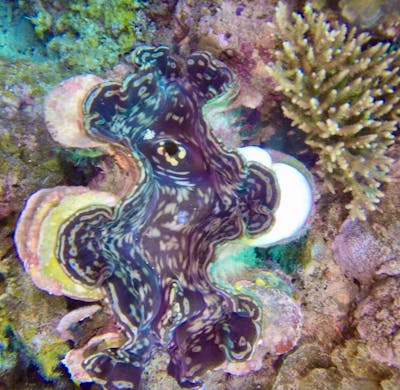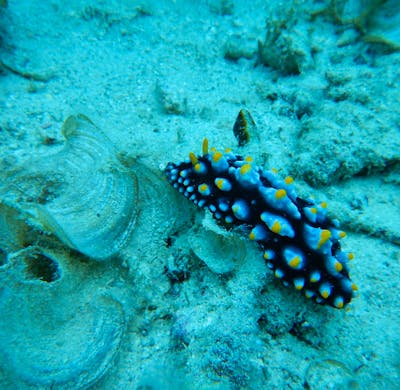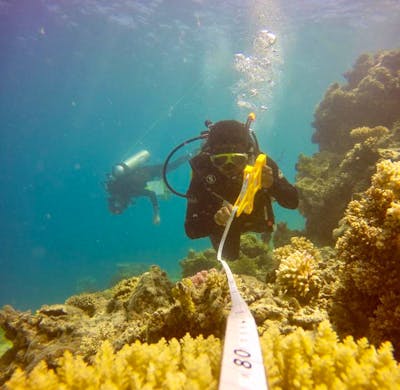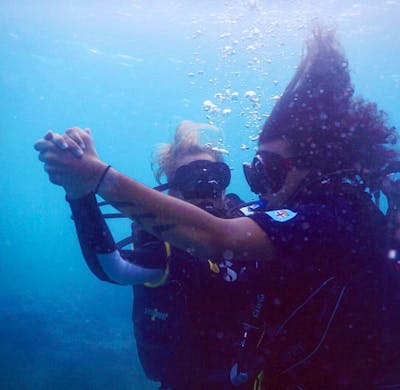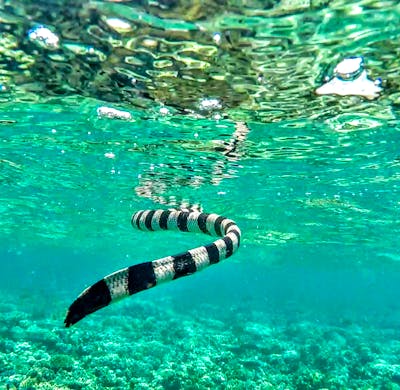2024 at Empowerment of Women Internship
from 2,395€
Brilliant 4.7 (199)
(199)
Climate Change and Coral Bleaching in Fiji
2 - 12 weeks
·
Age 18 - 50+
Verified by Volunteer World
Very high response rate
Brilliant 4.7 ·
·
Verified by Volunteer World
·
·
·
Verified by Volunteer World
·

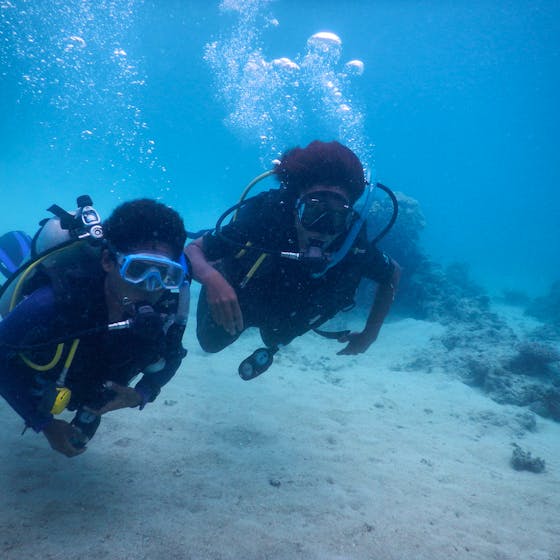
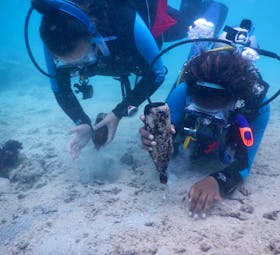
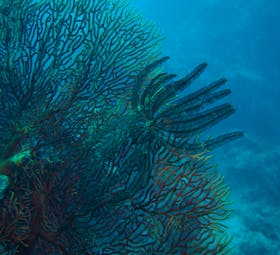
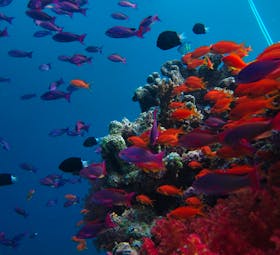
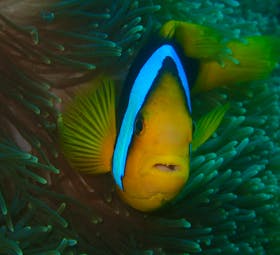
2 - 12 weeks
·
Age 18 - 50+
·
Very high response rate
Volunteer project with the highest quality.
This project sets unprecedented standards in quality - an unparalleled level of excellence.
Highlights
- Contribute to coral reef monitoring, learn about threats to coral reefs, and help to protect Fiji’s marine resources.
- Experience Fiji’s colourful coral reef systems and immerse yourself in the local culture.
- Learn how to identify species and conduct surveys to contribute to data collection efforts and help monitor and catalogue the biodiversity.
- Gain more diving experience with 5 adventure dives: deep water, underwater navigator, peak performance buoyancy and two optional adventure dives.
- Assist with benthic (coral) or fish target species surveys. You will also assist with our long-term monitoring coral bleaching surveys.
Especially suitable
About the program
Assist with marine conservation initiatives, like surveying corals for recovery after previous coral bleaching events and tropical storms! 🪸
This isn't your ordinary trip – it's an opportunity to dive into the heart of marine conservation and play a vital role in protecting Fiji's precious coral reefs.
You'll learn about the intricate world of coral biology and the complex challenges facing these vital ecosystems. Through hands-on ...
Typical day
Kick off your day with beachside coffee and soak up those sunrise vibes before diving into marine conservation activities. Enjoy group meals, lend a hand with base duties, and chill out with your crew as the evening sets in.
Example of a typical day:
06:30 Start your day early with a cup of coffee on ...
Free-time activities
Explore the local scene during your downtime:
- Takamaka rum distillery: Check out the rum distillery at Pointe Au Sel for a taste of local flavours. Nearby, you can also visit a tea plantation and a village showcasing local crafts.
- Victoria City: Dive into the diverse culture of Seychelles in Victoria, ...
Requirements
What's Included
What's NOT included?
Details on arrival
2023
- 02 Sep 2023
- 16 Sep 2023
- 30 Sep 2023
- 14 Oct 2023
- 28 Oct 2023
- 11 Nov 2023
- 25 Nov 2023
- 09 Dec 2023
2024
- 06 Jan 2024
- 20 Jan 2024
- 03 Feb 2024
- 17 Feb 2024
- 02 Mar 2024
- 16 Mar 2024
- 30 Mar 2024
- 13 Apr 2024
- 27 Apr 2024
- 11 May 2024
- 25 May 2024
- 08 Jun 2024
- 22 Jun 2024
- 06 Jul 2024
- 20 Jul 2024
- 03 Aug 2024
- 17 Aug 2024
- 31 Aug 2024
- 14 Sep 2024
- 28 Sep 2024
- 12 Oct 2024
- 26 Oct 2024
- 09 Nov 2024
- 23 Nov 2024
- 07 Dec 2024
- 21 Dec 2024
Availability
Jan
Feb
Mar
Apr
May
Jun
Jul
Aug
Sep
Oct
Nov
Dec
Program fees
2 weeks (min. stay)
2,395€
4 weeks
3,695€
6 weeks
4,845€
8 weeks
5,645€
10 weeks
6,545€
12 weeks (max. stay)
7,495€
Average fees
911€/week
Meet your organization
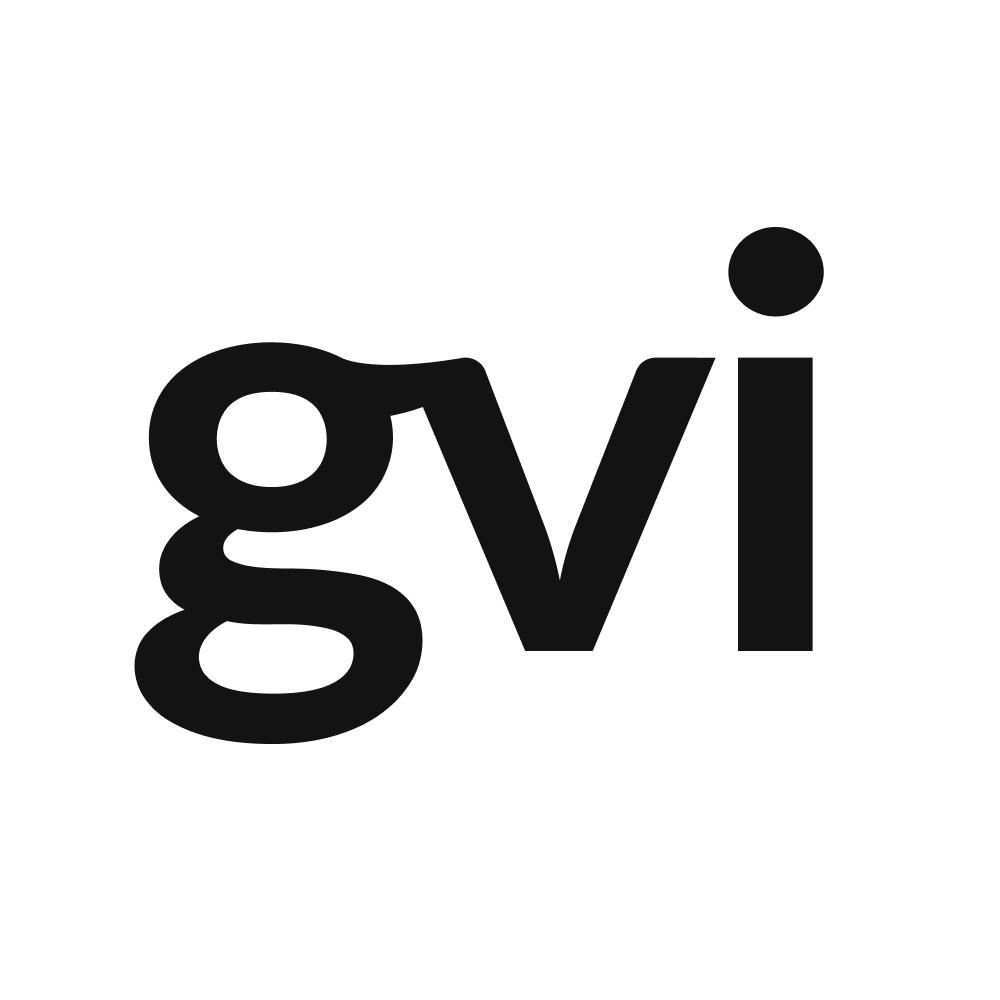
GVI
Brilliant 4.7
 (199 reviews)
(199 reviews)
Agency - founded in 1998
Verified by Volunteer World
Very high response rate
Coordinated by

Bianca
Spoken languages: English
About the project
GVI tackles critical local and global issues by operating award-winning education and training programs on sustainable development projects around the world.
199 reviews ·  4.7
4.7
Location

You might also be interested in
-
Coral Reef Conservation
Diving
Premium
Sea Turtle Conservation
Volunteer Trips for College Students
Global Volunteer Opportunities
Nature Volunteering
Best Volunteer Programs
Adults
Sea Turtles Fiji
Couples
Voluntouring
Mission Trips
Climate Change
Projects Abroad
50 Plus Volunteering
